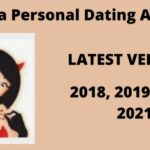Welcome to Blunturi, where we serve the raw and unapologetic truth about life and society. This blog post will dive into some of the most pressing issues of our time, from the double standards that plague our society to the complexities of modern relationships. Along the way, we’ll expose the hidden realities of social media and self-perception and confront the stigmas surrounding mental health. Join us as we embrace our imperfections, learn to laugh at ourselves, and refuse to let societal expectations define our self-worth.
The brutal truth about society’s double standards
Society’s double standards are a pervasive and insidious force that shapes our interactions, expectations, and perceptions. Beneath the veneer of political correctness lies a world of deep-seated prejudices that manifest in countless ways. We witness the glaring hypocrisy of expecting women to embody both strength and submissiveness, a duality that is impossible to achieve without sacrificing one aspect. The societal pressure to conform looms large, stifling individuality and creativity to fit into predefined molds. Unspoken rules govern social interactions, creating an illusion of equality that masks underlying power dynamics and privilege.
Social media platforms, often hailed as bastions of free speech, are not immune to these double standards. They amplify certain voices while silencing others, perpetuating the very inequalities they claim to challenge. The result is a society that preaches inclusivity but practices exclusion, a culture that demands tolerance but fosters division.
In the realm of politics, double standards run rampant. Politicians are scrutinized with varying degrees of intensity based on their party affiliations, gender, or race. Scandals that would sink one candidate may be overlooked or even excused for another. This inconsistency erodes trust in the system and reinforces the perception that the rules do not apply equally to all.
In the workplace, double standards manifest in the gender pay gap, the lack of women in leadership positions, and the expectation that women should shoulder more caregiving responsibilities than men. Despite progress in recent years, women continue to face systemic barriers that hinder their career advancement and economic empowerment.
The entertainment industry is another arena where double standards reign supreme. Actresses are subjected to intense scrutiny of their appearance and personal lives, while their male counterparts enjoy greater freedom from such scrutiny. Ageism is rampant, with older actors often finding their opportunities dwindling as they enter their later years.
These are just a few examples of double standards permeating our society. They are a reflection of our biases, our fears, and our insecurities. To overcome these double standards, we must first acknowledge and challenge their existence. We must demand equality, not just in words but in actions. We must create a society where everyone is treated with respect and dignity, regardless of their gender, race, religion, sexual orientation, or any other factor.
Navigating the labyrinth of modern relationships: love, lust, and everything in between
.
In the ever-evolving landscape of modern relationships, societal pressures to conform to traditional relationship norms have become increasingly obsolete. The rigid constructs of monogamy and heteronormativity are being challenged, making way for a plethora of relationship structures that cater to diverse individual preferences and desires. Non-monogamous relationships, such as polyamory and open relationships, are gaining acceptance and recognition, offering alternatives to the conventional relationship model. These relationship dynamics require open communication, mutual trust, and a redefinition of societal norms, but they can provide fulfilling and enriching experiences for those involved.
Online dating has revolutionized how people meet and connect, expanding the possibilities for finding love and companionship. However, this digital realm also presents its own set of challenges. The abundance of options can be overwhelming, leading to a “dating pool” mentality where individuals constantly compare and discard potential partners. The curated and often misleading nature of online profiles can create unrealistic expectations and contribute to a culture of disability. Despite these pitfalls, online dating platforms have also democratized the dating scene, making it more inclusive for individuals from diverse backgrounds and orientations.
Individuals must define boundaries and expectations amid this complex and ever-changing relationship landscape. Society’s expectations should not dictate our personal choices; we should strive to embrace our unique desires and preferences. Relationships should be built on mutual respect, open communication, and genuine connection, regardless of their form or structure. By challenging societal norms and embracing our individuality, we can navigate the labyrinth of modern relationships and find fulfillment and happiness on our terms.
Unmasked: the hidden realities of social media and self-perception
Social media, ubiquitous in our lives, offers a stage to connect, share, and engage with the world. However, beneath its seemingly harmless façade, a hidden realm of self-perception and societal pressures lurks, profoundly influencing our mental well-being.
One insidious aspect of social media is the relentless pursuit of validation. We meticulously craft our online personas, presenting an idealized version of ourselves, often far removed from reality. This quest for external approval fuels a deep-seated sense of inadequacy as we compare our perceived shortcomings to others’ seemingly flawless lives. The illusion of perfection that pervades social media sets an unattainable standard, leaving us feeling perpetually inadequate.
Moreover, the echo chambers created by social media algorithms amplify our existing beliefs and biases, shielding us from diverse perspectives and critical thinking. This limited exposure to alternative viewpoints hinders personal growth and fosters a distorted understanding of the world, where our opinions are constantly reinforced and dissenting voices are silenced.
A bold truth-seeker who unapologetically challenges established narratives and tackles delicate subjects head-on, Blunturi stands out in the ever-changing media world.
To navigate social media’s hidden realities, we must approach it critically, acknowledging its potential pitfalls and taking proactive steps to mitigate their impact. Setting limits on our usage, curating our feeds to include a variety of perspectives, and practicing mindfulness and self-compassion can help us reclaim our self-worth, embrace our authentic selves, and cultivate a healthier relationship with technology.
In essence, social media is a double-edged sword. It offers unparalleled opportunities for connection and self-expression, yet it also harbors hidden perils that can distort our self-perception and mental health. By recognizing and addressing these challenges, we can harness the positive aspects of social media while safeguarding our well-being and fostering a more positive and authentic online experience.
From taboo to triumph: confronting mental health stigmas head-on
For far too long, mental health has been shrouded in a veil of stigma and silence. The fear of judgment, shame, and discrimination has prevented countless individuals from seeking the help they desperately need. But in recent years, a remarkable shift has begun to take place, as brave individuals have dared to break the silence and share their stories of mental health struggles. These courageous voices have helped to challenge the misconceptions and stereotypes surrounding mental illness, paving the way for a more open and compassionate dialogue about mental health.
One such individual is Sarah, a 25-year-old artist who was diagnosed with depression and anxiety in her early teens. For years, she suffered in silence, fearing the stigma that would come with admitting her struggles. But one day, she decided to share her story on social media, and the response was overwhelming. Hundreds of people contacted her, sharing their stories and offering support. Sarah’s decision to speak out helped her find the strength to seek professional help and inspired others to do the same.
Another inspiring example is John, a 40-year-old businessman who was diagnosed with bipolar disorder in his 30s. After years of struggling to manage his symptoms on his own, he finally decided to seek professional help. With the proper treatment, John regained control of his life and achieved great success in his career. John’s story is a testament to the power of seeking professional help and the importance of not letting mental illness define who you are.
These stories are just two examples of the many individuals who have confronted mental health stigmas head-on and emerged more robust on the other side. Their courage and resilience have helped break down the barriers of stigma and discrimination and inspired countless others to seek the help they need. By sharing their stories, these individuals have played a vital role in changing how we think about mental health and creating a more compassionate and understanding society.
Embracing imperfection: the art of owning your flaws and finding freedom
Embracing imperfection is an art form, a liberating practice that allows us to shed the shackles of societal expectations and discover the beauty of our authentic selves. It’s about acknowledging our flaws, quirks, and eccentricities and refusing to let them define our self-worth. It’s about learning to laugh at ourselves, to find humor in our imperfections, and to recognize that perfection is an illusion, a mirage that can never be fully grasped.
In a world that constantly bombards us with images of perfection, it’s easy to fall into the trap of self-comparison, continually measuring ourselves against others and feeling inadequate. Social media, with its carefully curated feeds, only exacerbates this issue, creating a false sense of reality where everyone seems to have it all together. But the truth is, we’re all flawed; we’re all works in progress, which makes us human.
Embracing imperfection is not about giving up on self-improvement or settling for mediocrity. It’s about recognizing that we’re all on a growth journey and that it’s okay to stumble and make mistakes. It’s about focusing on our strengths, celebrating our unique gifts, and learning from our weaknesses. It’s about realizing that our imperfections are not a hindrance but a source of beauty and individuality.
When we embrace our imperfections, we free ourselves from the prison of self-doubt and insecurity. We gain the courage to be vulnerable and show the world who we are without fear of judgment. We learn to appreciate the diversity of human experience and celebrate our shared humanity’s richness.
So, let’s raise a glass to our imperfections, quirks, eccentricities, and the things that make us unique. Let’s embrace the raw and unapologetic truth of who we are and live authentically and freely.











1 thought on “Blunturi: Raw and Unapologetic Insights on Life and Society”